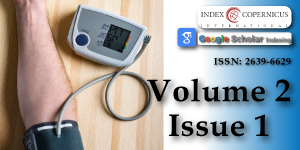Cardiovascular risk reduction: Past, present and future in Mexico
Main Article Content
Abstract
Atherosclerotic cardiovascular disease (ASCVD) is globally defined as coronary heart disease, cerebrovascular disease, or peripheral arterial disease presumed to be of atherosclerotic origin and it is the leading cause of morbidity and mortality for individuals with or without diabetes and is the largest contributor to the direct and indirect catastrophic costs of cardiovascular disorder. Very common conditions coexisting into the cardiovascular risk (e.g., obesity, hypertension, diabetes and dyslipidemia) are clear risk factors for ASCVD, and diabetes itself confers independent risk. Numerous studies have shown the efficacy of controlling individual cardiovascular risk factors in preventing or slowing ASCVD in people with these disorders. In other words it is not enough control one risk factor. We need to develop novel strategies to detect and control all of them at the same time. Thus, large benefits are seen when multiple cardiovascular risk factors are addressed simultaneously. Under the current paradigm of aggressive risk factor modification in patients with cardiovascular risk, there is evidence that measures of 10-year coronary heart disease (CHD) risk among U.S. adults with cardiovascular risk have improved significantly over the past decade and that ASCVD morbidity and mortality have decreased. In Mexico the Mexican Institute of Social Security is implementing new strategies of primary and secondary prevention in order to confront this pandemic.
In this review, we analyze the state of the art to approach at the same time the different cardiovascular risk factors, in an integral form because of this is the real worldwide challenge of health.
Article Details
Copyright (c) 2018 Sánchez GB, et al.

This work is licensed under a Creative Commons Attribution 4.0 International License.
Hearth Disease and Stroke Statistics 2018. At-a-Glance. Ref.: https://tinyurl.com/ydbhpbz4
Vitalsigns: Preventable Deaths from Heart Disease & Stroke. CDC. 2013. Ref.: https://tinyurl.com/ybdrhwye
Lara A, Rosas M, Pastelín G, Aguilar C, Attie F, et al. Hipercolesterolemia e hipertensión arterial en México. Consolidación urbana actual con obesidad, diabetes y tabaquismo. Arch Cardiol Méx. 2004; 74: 231-245. Ref.: https://tinyurl.com/yb5q9mph
Vital signs: Getting Blood Pressure Under Control. CDC. 2012.
Rosas-Peralta M, Palomo-Piñón S, Borrayo-Sánchez G, Madrid-Miller A, Almeida-Gutiérrez E, et al. Consenso de Hipertensión Arterial Sistémica en México. Rev Med Inst Mex Seguro Soc. 2016; 54: S6-51. Ref.: https://tinyurl.com/y7klddw9
Whelton PK, Carey RM, Aronow WS, Casey DE Jr, Collins KJ, et al. 2017 ACC/AHA/AAPA/ABC/ACPM/AGS/APhA/ ASH/ASPC/NMA/PCNA Guideline for the Prevention, Detection, Evaluation, and Management of High Blood Pressure in Adults: Executive Summary: A Report of the American College of Cardiology/American Heart Association Task Force on Clinical Practice Guidelines. J Am Coll Cardiol. 2017; 71: 1269-1324. Ref.: https://tinyurl.com/y9ne3q62
Philippe Gabriel Steg. Evaluation of Cardiovascular Outcomes after an Acute Coronary Syndrome during Treatment with Alirocumab-ODYSSEY OUTCOMES. 2018. Ref.: https://tinyurl.com/y8zxkt44
American Diabetes Association. Cardiovascular Disease and Risk Management. Diabetes Care 2015; 38: S49-S57. Ref.: https://tinyurl.com/y7amyz9g
CushmanWC, Evans GW, Byington RP. Effects of intensive blood pressure control in type 2 diabetes mellitus. N Engl J Med. 2010; 362: 1575-1585. Ref.: https://tinyurl.com/y7qox7a9
Patel A, MacMahon S, Chalmers J, Neal B, Woodward M, et al. Effects of a fixed combination of perindopril and indapamide on macrovascular andmicrovascular outcomes in patients with type 2 diabetesmellitus (the ADVANCE trial): a randomised controlled trial. Lancet. 2007; 370: 829-840. Ref.: https://tinyurl.com/ybdte4qz
Hansson L, Zanchetti A, Carruthers SG, Dahlöf B, Elmfeldt D, et al. Effects of intensive bloodpressure lowering and low-dose aspirin in patients with hypertension: principal results of the Hypertension Optimal Treatment (HOT) randomized trial. Lancet. 1998; 351: 1755-1762. Ref.: https://tinyurl.com/ybhpkwbv
Wright JT Jr, Williamson JD, Whelton PK, Snyder JK, Sink KM, et al. A randomized trial of intensive versus standard blood-pressure control. N Engl J Med. 2015; 373: 2103-2116. Ref.: https://tinyurl.com/y72m7hyr
Rosas-Peralta M, Borrayo-Sanchez G, Ramirez-Arias E, Almeida-Gutierrez E, Garcia-Méndez R, et al. Obesity and Cardiovascular Risk in Mexico: Pathophysiology and Prevention. Obes Control Ther. 2017; 4: 1-9. Ref.: https://tinyurl.com/yb5lazzw
Encuesta Nacional de Salud y Nutrición de Medio Camino 2016. Ref.: https://tinyurl.com/y8adkuld
Knowler WC, Barrett-Connor E, Fowler SE, Hamman RF, Lachin JM, et al. Reduction in the incidence of type 2 diabetes with lifestyle intervention or metformin. N Engl J Med. 2002; 346: 393-403. Ref.: https://tinyurl.com/ybp9jkvx
.Wentworth JM, Playfair J, Laurie C, Ritchie ME, Brown WA, et al. Multidisciplinary diabetes care with and without bariatric surgery in overweight people: a randomised controlled trial. Lancet Diabetes Endocrinol. 2014; 2: 545-552. Ref.: https://tinyurl.com/y7cwbwrq
Adams TD, Arterburn DE, Nathan DM, Eckel RH. Clinical outcomes of metabolic surgery: microvascular and macrovascular complications. Diabetes Care. 2016; 39: 912-923. Ref.: https://tinyurl.com/y8z8sjv3
Sjöström L, Narbro K, Sjöström CD, Karason K, Larsson B, et al. Effects of bariatric surgery on mortality in Swedish obese subjects. N Engl J Med. 2007; 357: 741-752. Ref.: https://tinyurl.com/yc8lcuxx
Guasch-Ferré M, Salas-Salvadó J, Ros E, Estruch R, Corella D, et al. The PREDIMED Investigators. The PREDIMED trial, Mediterranean diet and health outcomes: How strong is the evidence? Nutr Metab Cardiovasc Dis. 2017; 27: 624-632. Ref.: https://tinyurl.com/y7rowpxx
IMSS. MODELO PREVENTIVO DE ENFERMEDADES CRÓNICAS. Ref.: https://tinyurl.com/yc29ehxh
Fuster V. Ref.: https://tinyurl.com/ybq5wqmp
Peñalvo JL, Santos-Beneit G, Sotos-Prieto M, Bodega P, Oliva B, et al. The SI! Program for Cardiovascular Health Promotion in Early Childhood A Cluster-Randomized Trial. J Am Coll Cardiol. 2015; 66: 1525-1534. Ref.: https://tinyurl.com/ya88jmqm





